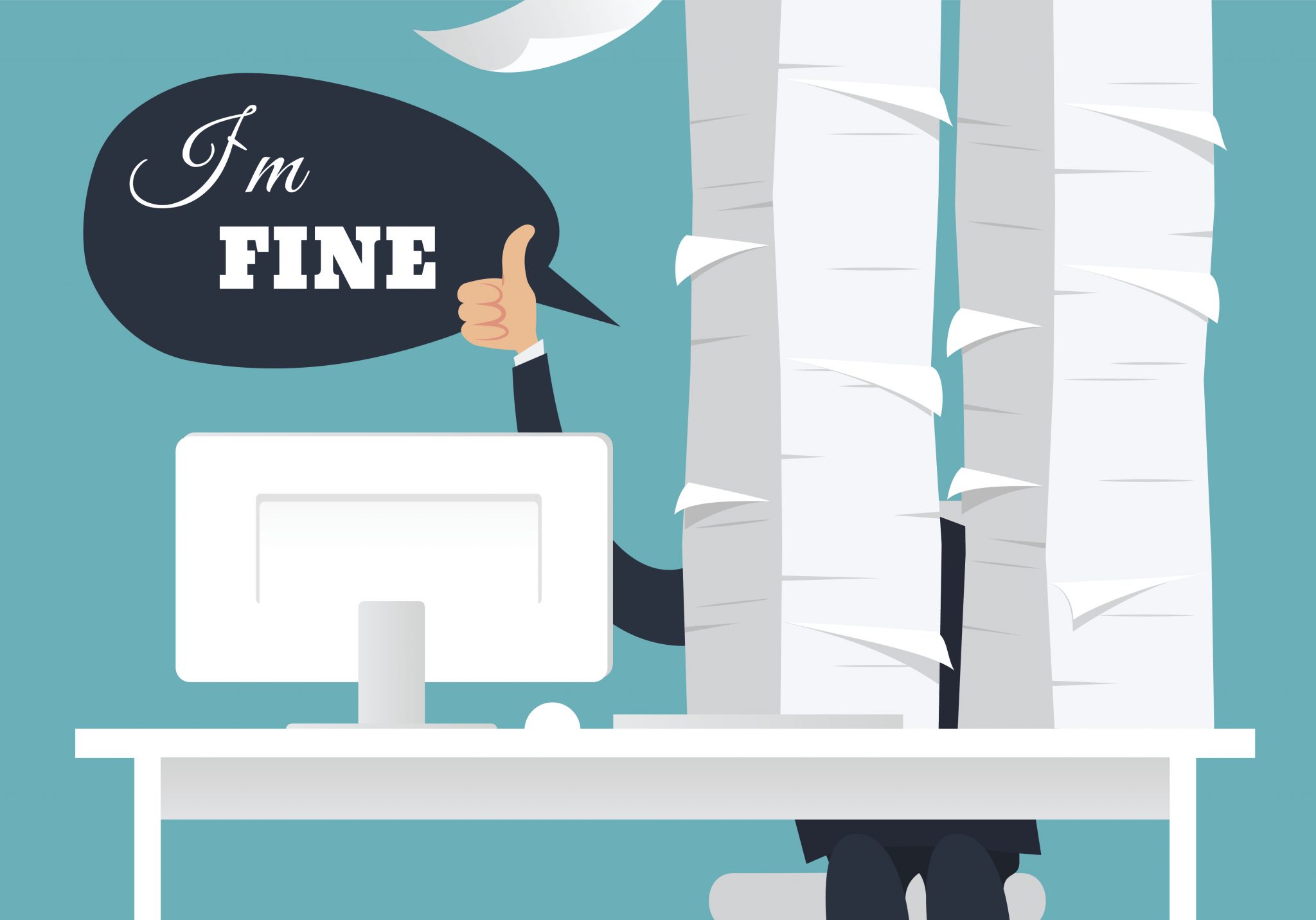In 2018 take care of yourself and your staff – and achieve (even) better results!
Stress, exhaustion and burnout are preventable, and as a leader, it’s a key part of your responsibility and commitment to the Core Humanitarian Standard, particularly commitment 8, which recommends that ‘staff are supported to do their job effectively and are treated fairly and equitably’. In order to live up to this commitment, it is important to pace yourself and model healthy working practices for your teams.

Are you used to running on empty? Do you ever pull an all-nighter to finish a proposal? Send emails at 5am? Cancel time with friends so you can meet that next deadline? Stress, exhaustion and burnout are preventable, and as a leader it’s a key part of your responsibility and commitment to the Core Humanitarian Standard, particularly commitment 8, which recommends that ‘staff are supported to do their job effectively and are treated fairly and equitably’. In order to live up to this commitment, it is important to pace yourself and model healthy working practices for your teams.
Part of the challenge of working in our sector is we are dealing with complex, often intractable problems, and the needs are immense. We’re compassionate, activist people and the work is never ‘done’. The gravitational pull in our cultures tends to be ‘work harder’.
When you are healthy and in a good place mentally, spiritually, physically, emotionally, you are able to give of your best – this takes intentional focus and habit because we are countering the gravitational pull of ‘work harder’.
There’s a challenge here for us as leaders to develop new habits that enable us to maintain a great pace and get the results we need, while also sustaining ourselves. We also of course model to others and we shape the culture around us. What you do and how you do it matters, as you are setting the tone and pace for those around you.
Before I dive into some practical tips around this, let’s take a moment to get curious about the beliefs we hold about ourselves that drive this behaviour…. Do we believe that we are somehow super human, indispensable, that yes that self-care stuff is important but that’s for everyone else, I don’t need that stuff, I’m too busy, and anyway I’m stronger, I’m more capable, I can push myself, I can work harder, I can rest later …. Or maybe it comes from a sense of unworthiness or set of imposter beliefs … I don’t have time for self-care, I need to work harder just to keep up with everyone else, I’m not as good as them and if I don’t keep going maybe they’ll find out?! ….. which of these beliefs resonate for you?
What if we chose to hold a different set of beliefs about ourselves – that we are awesome, capable and powerful AND we have limits? When we self-care we can give more. What kinds of behaviours might these new beliefs drive…
Here are 6 tips to equip you to live and lead in a way that sustains your wellbeing, while also delivering results. Reflect on which of these are most important for you at the moment, and consider sharing with your teams as a conversation starter.
- Accept you have limitations: this is human, normal and ok. The sometimes prevailing belief that we are superhuman, and if we’re not experiencing that there’s something wrong with us, is a lie and it leads to burnout. You are worthy, you are awesome, you are enough.
- Notice how you handle pressure: what are the aspects of your work that cause you to feel pressure? how do you operate as pressure increases over time? what are your symptoms of too much pressure? These could be physical symptoms like taking less or more sleep, stomach pains, headaches; behavioural symptoms such as impatience, grumpiness, flippancy; mental symptoms like forgetfulness or lack of concentration; emotional symptoms like tearfulness, feeling trapped and angry. These are just examples – you will have your own unique combination of symptoms, and not everyone on your team will respond to pressure in the same way as you! This is about tuning in and noticing what is going on for you and encouraging others to do the same for them. Once we are each more aware of how we respond to pressure, we can notice when we are heading to overload more quickly and act to keep ourselves healthy.
- Identify what are your specific coping strategies when you experience too much pressure: what are your habits? Are they life giving for you? Notice that some patterns we choose to numb pain or pressure (such as risky sex, alcohol, drugs, too much or too little food, too much exercise, Netflix binges….) can become risky or harmful for us. This is about knowing yourself, your limitations and vulnerabilities, and noticing the difference between strategies that are energising and life giving and strategies that numb or self-harm. It is common to have some blind spots here, you may like to invite a close friend, partner or team colleague to share some feedback with you to increase your self-awareness.
- Choose what else you are building into your life to build your resilience: what are your daily practices that build your emotional, psychological, spiritual and physical wellbeing? What helps you to feel good? We all know the ‘right’ answers about eating healthily, staying hydrated, limiting sugar, exercising regularly…… sometimes the challenge is doing it! Find some small thing that is energising and life giving for you, and that you can realistically do consistently. Small day-to-day practices like a 5 minute meditation, a 10 minute walk, a gratitude practice – will gradually and consistently build your inner resilience.
- Decide what are the boundaries you need to put in place: This might be a conversation with your boss or board about what’s in the priority list and what’s out (it can’t all be in!) This might be about negotiating or clarifying the edges of your role alongside other leaders and teams in a particular context. This might be about saying no, delegating, or developing your team to step up and share leadership of key programmes. These boundary-setting behaviours can feel really hard and counter cultural in some agencies. What support do you need, to start having these kinds of conversations?
- Talk about resilience and well-being with your team: I invite you to share with your team where your own limitations are, and what are your symptoms of too much pressure. This kind of vulnerability is powerful. When your team know this about you they can support you better. It also gives them permission to be human, to have their own needs and vulnerabilities, and to ask for them to be met. You start to recognise the differences in your team (this is so useful, not everyone responds to pressure like you, although our default as leaders is to assume that they do!)
I’ve coached teams where they each shared their own symptoms of too much pressure, and their own resilience building strategies, so that they could challenge and support one another. These teams are now thriving. What kinds of conversations could you have to explore this and offer support and accountability to one another. These kinds of conversations enrich your relationships and contribute to a more engaged, motivated and ultimately sustainable team!
Which of these tips are most relevant for you and your team? Here’s to a fantastic year where you and your teams thrive AND achieve awesome results!

